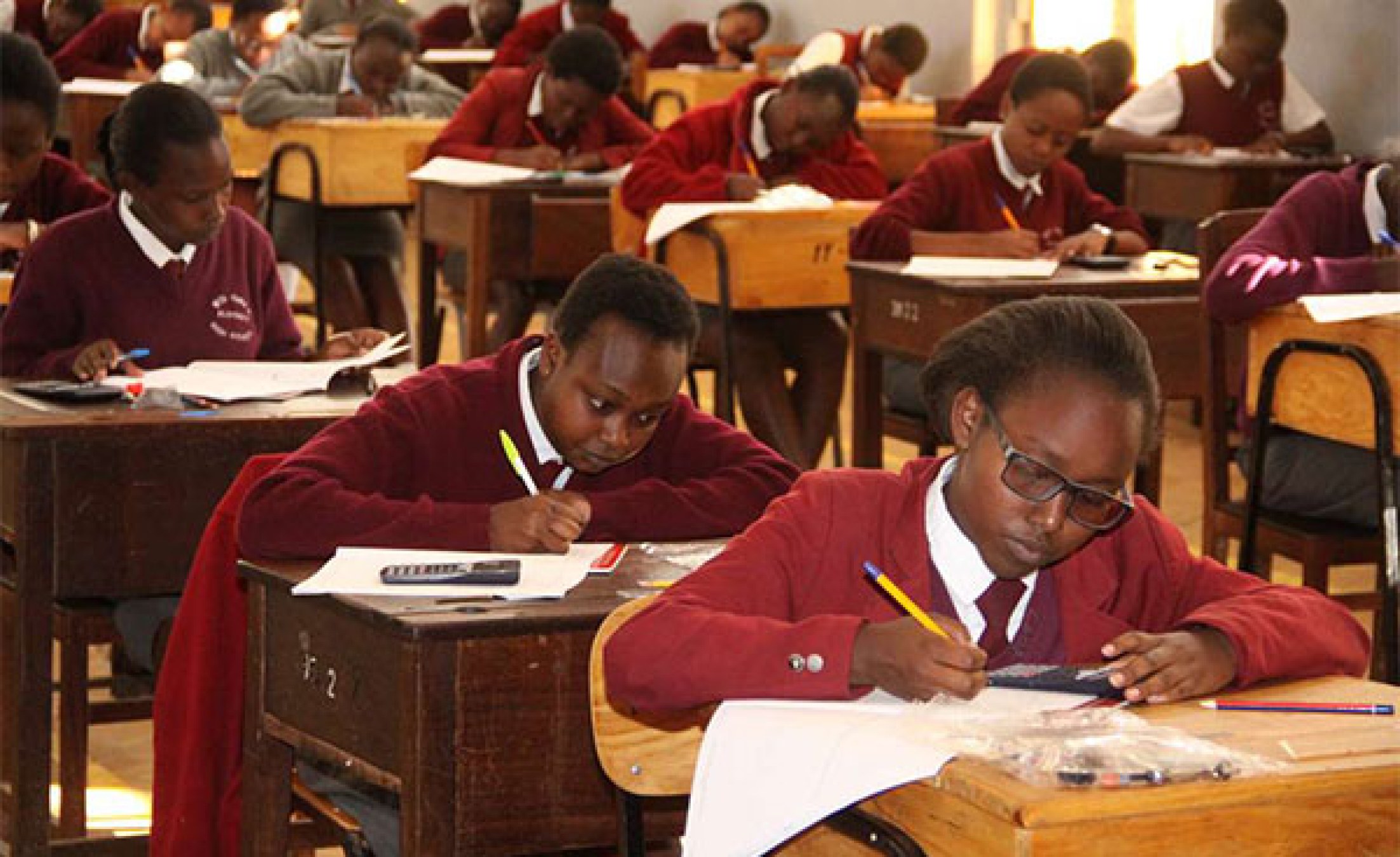 Candidates sit a past national exam. /FILE
Candidates sit a past national exam. /FILEThe Teachers Service Commission is emphasising integrity as it prepares for the 2025 national examinations, setting strict guidelines that serve as a cornerstone for the smooth execution of the assessments.
The well-defined timelines and procedures echo a commitment to achieving examination outcomes that reflect the true capabilities of learners.
The exams will run from October 21 to November 21, covering five major assessments.
The Kenya Certificate of Secondary Education (KCSE) will have rehearsals starting October 17. Exams begin on October 21 and end on November 21.
The Kenya Junior School Education Assessment (KJSEA) rehearsals are on October 24 and 27. Exams run from October 27 to November 3.
Kenya Pre-Vocational Learners Education Assessment (KPLEA) rehearsals occur on October 24 and 27, with exams starting on October 27 and ending on October 30.
The Kenya Primary School Education Assessment (KPSEA) rehearsals are on October 24 and 27, and exams run from October 27 to October 29.
Lastly, the Kenya Intermediate Learners Education Assessment (KILEA) rehearsals are on October 25 and 28, with exams from October 28 to October 30.
TSC is clear that only qualified and registered teachers will manage the exams.
Acting Commission Secretary and CEO E. J. Mitei said nominees must be “of high integrity and not easily compromised.”
The Commission has set September 26 as the deadline for nominating Centre Managers, Supervisors, and Invigilators.
All must register on the CP2 system for deployment.
To protect the exam process, supervisors and invigilators cannot serve in any school where they worked in the last three years.
They must also declare any vested interest in their posted centres. Those with conflicts will be redeployed.
Centre Managers will verify staff details and conduct daily online attendance from rehearsal to exam end.
They are tasked with confirming the identity and qualifications of Supervisors and Invigilators and their workstations.
All attendance records will be downloaded, printed, signed, and stamped before submission to KNEC, ensuring accountability at every stage of the process.
This measure, supported by configuration within the CP2 system itself, prevents repeated assignments in the same centres and mitigates opportunities for compromised conduct.
Staffing ratios include one supervisor for every 200 candidates, and one invigilator for every 20.
Centres with both KJSEA and KPSEA candidates will get separate supervisors if each has at least 30 candidates.
Centres with blind candidates must have an invigilator familiar with Braille.
For Stage-Based Pathway exams like KILEA and KPLEA, teachers will invigilate their own learners. For every 10 learners, there should be one invigilator.
These centres will not have external supervisors or Centre Managers.
Supervisors for KCSE must hold a diploma or higher and usually be senior teachers.
Invigilators must have at least three years of teaching experience.
Supervisors will rotate weekly, handing over duties to incoming officers.
During KCSE oral and practical exams, only supervisors need to be present.
Subcounties facing challenges in recruitment have been advised to seek support via email.
The TSC's firm stance on integrity and clear timelines underscores its commitment to fair, credible national examinations.
This preparation assures students, teachers, and parents of a robust and transparent examination season.
















